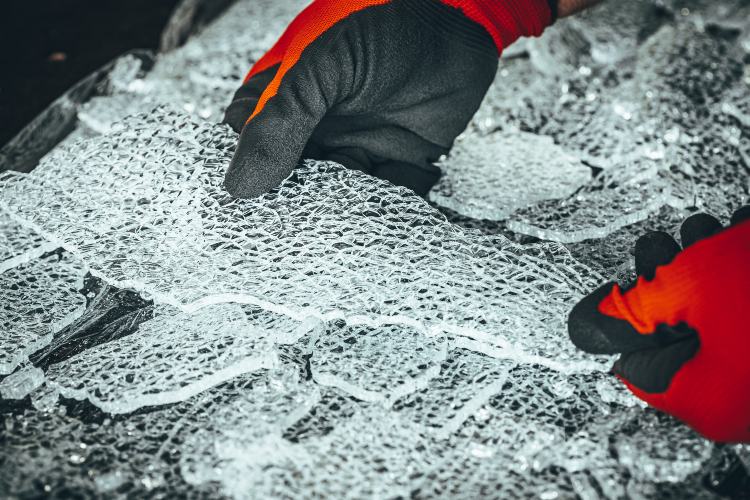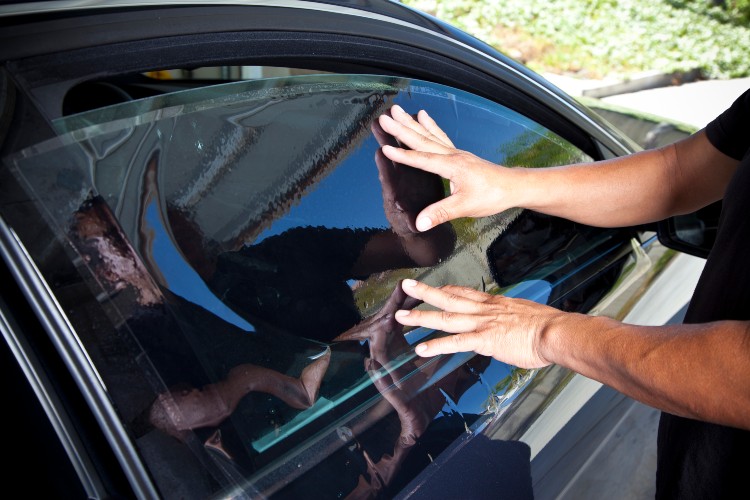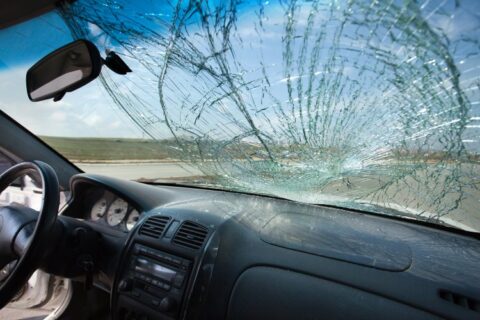Tempered vs. Laminated Windshield Glass: What’s the Difference?
Tempered vs. Laminated Windshield Glass
As a responsible driver, safety and functionality should always come first. One key factor often overlooked is the type of glass in your windows and windshield. Deciding between laminated glass vs. tempered glass can affect everything from impact resistance to repair costs. Here’s what you need to know about these two types of glass, their pros and cons, and how to choose the best option for your windshield.
What is Tempered Glass?
Tempered glass, also called toughened or safety glass, undergoes a specialized heat treatment process. The glass is heated to a high temperature and then rapidly cooled, a method known as quenching. This process makes the glass four to five times stronger than standard annealed glass.

Key Features of Tempered Glass
Thanks to the tempering process, this glass can withstand heavy stress and impact. When it does break, it shatters into blunt, pebble-like pieces rather than sharp shards, reducing the risk of injury.
Tempered glass is commonly used for side and rear car windows. Its ability to break into less harmful pieces ensures that occupants can exit the vehicle in an emergency without risking severe cuts.
Pros and Cons of Tempered Glass
Pros:
- Increased strength: Tempered glass resists minor impacts and stress.
- Safer breakage pattern: It breaks into small, dull pieces to minimize injury.
- Cost-effectiveness: Tempered glass is generally less expensive than laminated glass.
Cons:
- Irreparable: Once tempered glass is damaged, it cannot be repaired and requires complete replacement.
- Limited UV protection: It doesn’t block ultraviolet rays as effectively as laminated glass, meaning you can still get sunburned through your car windows.
What is Laminated Glass?
Laminated glass consists of two or more glass layers bonded with a plastic interlayer, typically polyvinyl butyral (PVB). This construction ensures that even if the glass cracks, the fragments adhere to the interlayer and do not scatter.
Key Features of Laminated Glass
Laminated glass stays in one piece even after a significant impact, like a crash or rock strike. If you’ve ever noticed a windshield with spiderweb-like cracks spreading from a single spot, you’ve seen laminated glass in action. The interlayer that keeps the glass intact lowers the risk of injury and helps prevent passengers from being ejected in a crash.
Because of these properties, laminated glass is the standard for windshields. It’s also becoming more common inside windows for added security and noise reduction.
Pros and Cons of Laminated Glass
Pros:
- Superior safety: The interlayer design prevents the glass from shattering upon impact.
- UV protection: Laminated glass blocks up to 99.9% of harmful UV rays.
- Noise reduction: Expect excellent sound-dampening properties for a quieter car interior.
Cons:
- Higher cost: The complex manufacturing process makes laminated glass more expensive than tempered glass.
- Repair limitations: Minor damage like rock chips can often be repaired but cracks larger than about 1 inch require a full replacement.
How Do Tempered and Laminated Glass Differ?
While both types of glass are engineered for safety, they have different manufacturing processes and behave differently upon impact. Tempered glass is a single pane treated for strength, while laminated glass features a plastic interlayer that prevents the glass from shattering upon impact.
Which Type of Glass is Best for Your Windshield?
Laminated glass is the preferred choice for windshields. It provides a crucial safety barrier if you get into an accident, protecting occupants from external debris and reducing the chance of being ejected during a collision. Its UV-blocking and soundproofing properties further enhance the driving experience.
Repair and Replacement Considerations
Depending on their size and location, minor chips and cracks in a laminated glass windshield can often be repaired without needing a full replacement. However, due to its breakage pattern, any damage to a tempered glass window typically requires complete replacement.
The Role of Professionals
As a vital safety feature of your car, you don’t want to leave auto glass to chance. Trained technicians know how to spot damage, determine the best fix, and handle repairs or replacements correctly. Their know-how ensures your glass does what it’s supposed to do—protect you and keep your vehicle safe.
Choose Safety, Choose Expertise
Baker Glass has been the go-to expert for glass installation and repair in Jacksonville, FL, since 1993. From tempered vs. laminated auto glass to home windows and shower doors, our locally owned team is known for fast, reliable service, upfront pricing, and the best customer experience around. We employ eight mobile vans to perform windshield replacement on the road, making it easy to get the help you need. For custom tempered glass or laminated glass solutions, please contact us today. No one treats you better.


